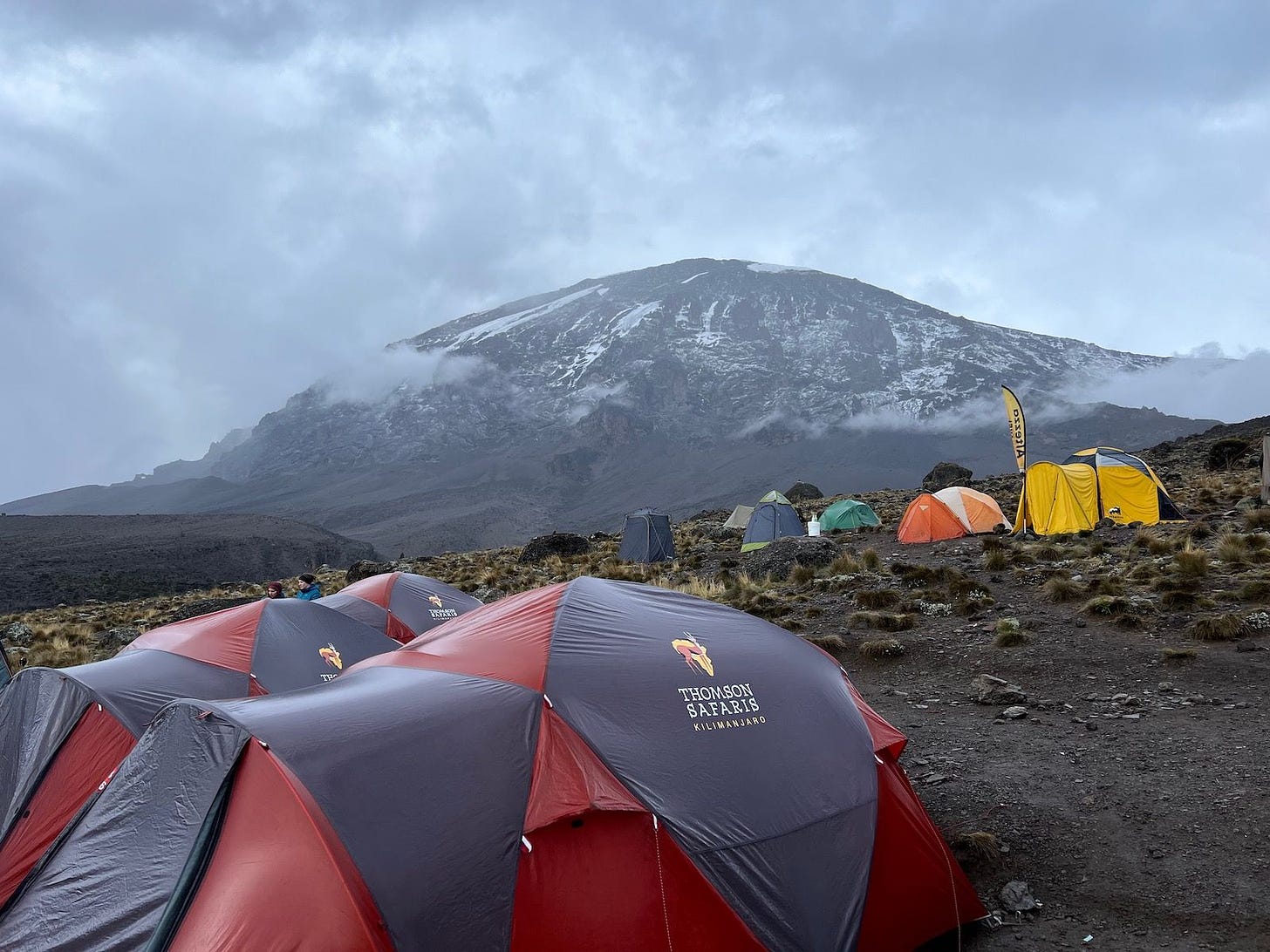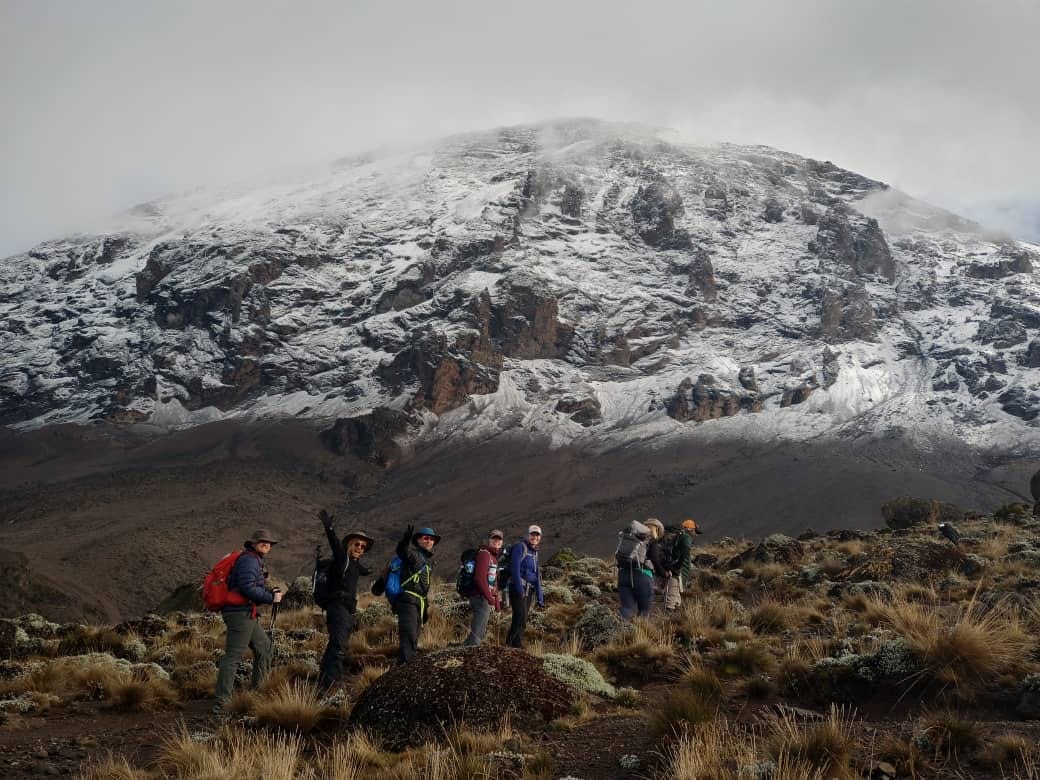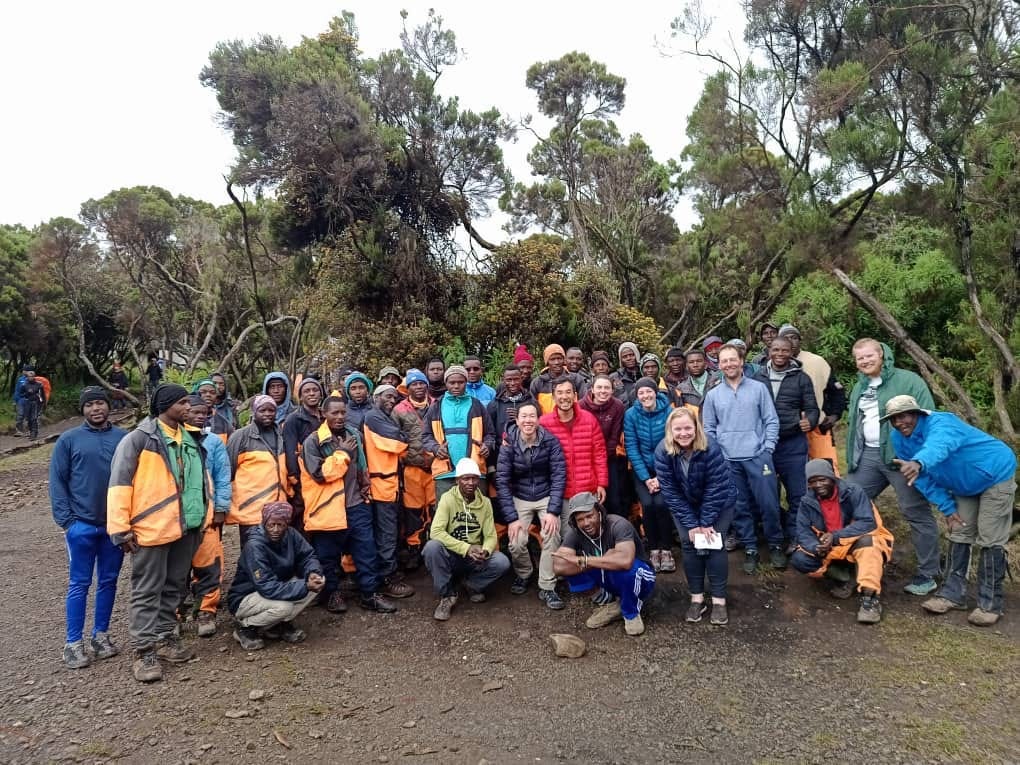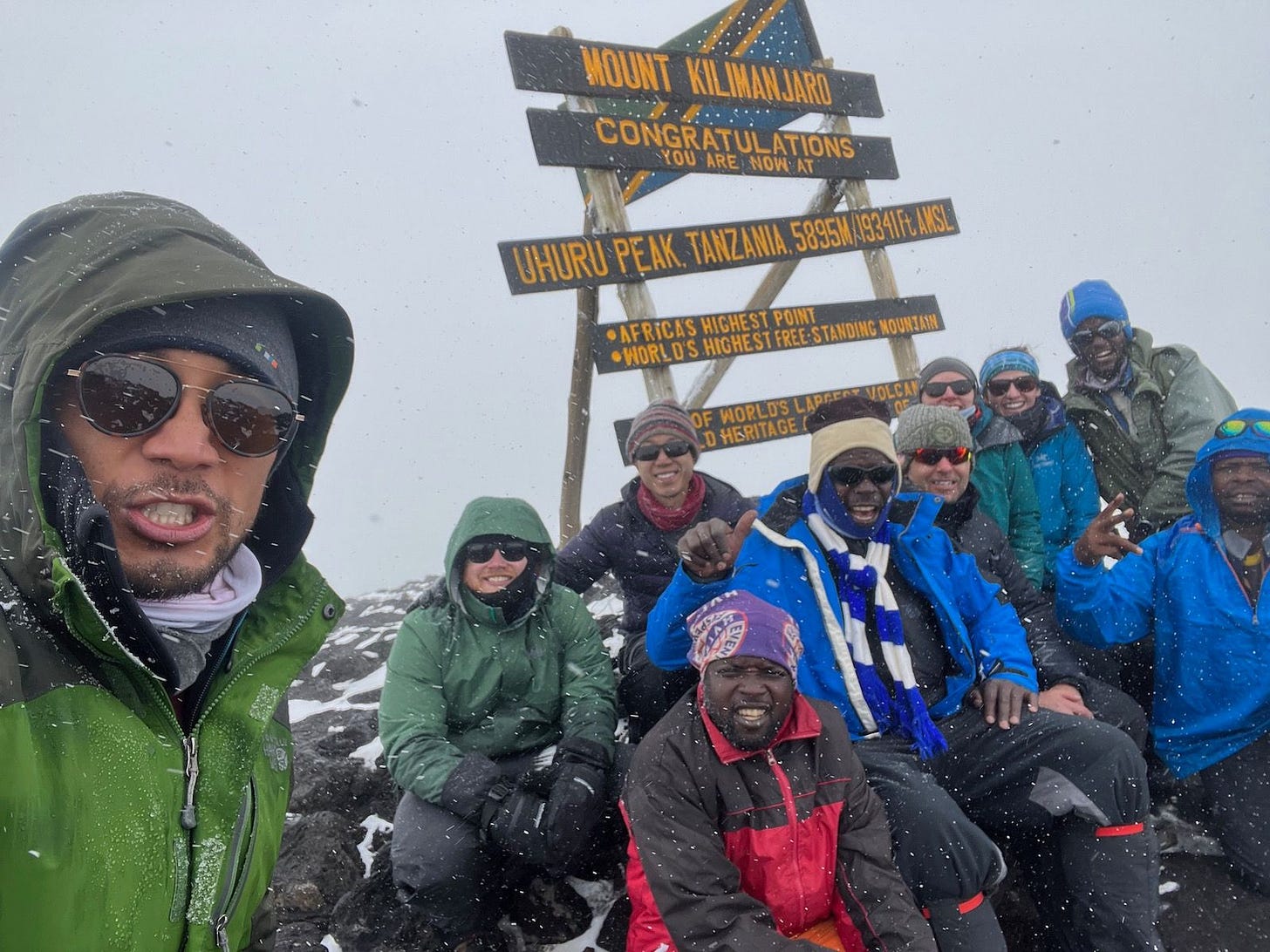How Kilimanjaro Dared Me to Dream Bigger
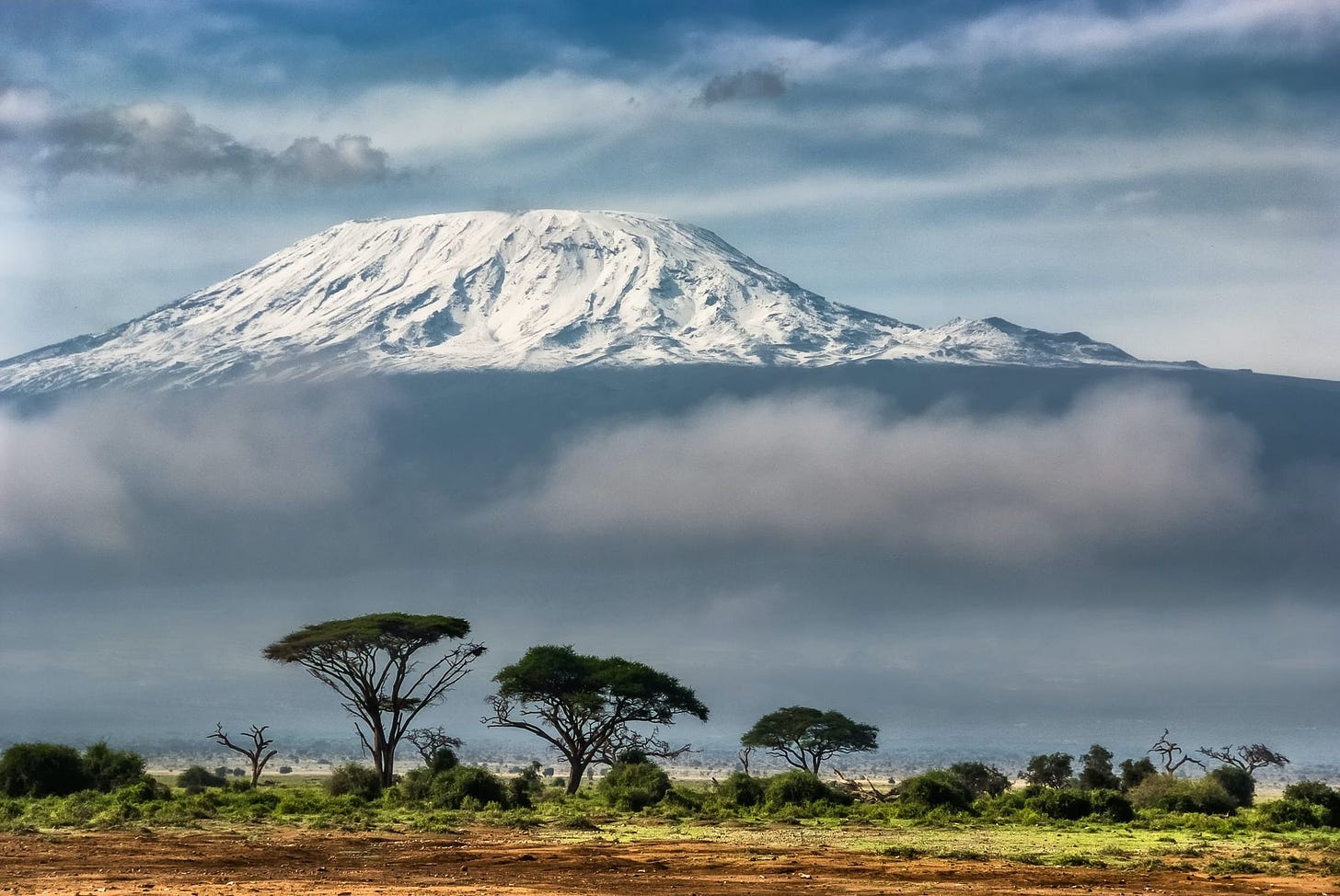
At 18,000 feet, the nausea and loss of appetite starting kicking in, compounding the dreaded headache that I was already feeling.
My body felt perennially out of breath with every small step. At that altitude, the oxygen levels had dropped to 50% of what was available at sea level, and my lungs just couldn't take in enough oxygen to make up for what I was expending.
I kept trying to catch my breath but was never able to. Each time I took even a mildly strenuous step, I needed to pause and regroup.
I was 7 days and 44 miles into climbing Kilimanjaro, Africa’s tallest peak standing at 19,341 ft. Waking up at 2:30am on Summit Day after a terrible night of sleep, our climbing party had already been hiking 4+ hours and ascended 2,000 feet through falling snow and cold winds. One person had already hit her limit and turned back around earlier that morning.
I still had over 1,000 feet and 3 hours to go. And I didn’t know if I was going to make it.
A part of me wanted to just sprawl onto the snow-covered trail to rest. But I wasn't sure if I'd be able to get up and continue if I did.
“It’s not about conquering the mountain. It’s about conquering yourself and your demons,” George, one of our guides, had said at the previous evening's trek briefing.
And the demons were fierce that day. Would my headaches and altitude sickness get worse? How could I sustain 3 more hours of hiking while out of breath? How sad would it be if I came so far only to fail?
Tears welled in my eyes. I felt discouraged that I might come so close to the peak, only to turn around.
When I first decided to climb Kilimanjaro a month before, I wasn't sure why I was doing it. I only knew that I was following the call from deep within my soul.
I didn't know what was involved, what the climb would be like, or how hard it would be. I just decided that I was going to do a thing.
The evening before Summit Day, I'd written a journal entry about what the summit meant to me. I rarely read my journal to others, but a part of me felt called to share a piece of my inner world. And as we gathered in the dining tent, I read the entry to the six other trekkers attempting the summit with me:
Summiting Kilimanjaro will be the single, greatest physical feat I've ever accomplished. And as George mentioned, summiting isn't about conquering the mountain. It's about conquering yourself and the demons that show up in the climb.
The Edmond who summits Kilimanjaro has nothing to hide anymore. He is capable of any big dream he puts his mind and heart to. He decided to climb Kilimanjaro barely over a month ago, and here he is — a 7-hour, 3k-feet ascent, 4km trek away from being on top of Uhuru Peak, the peak that means freedom.
Every step I take is one step toward deeply trusting myself to the core. One more step toward experiencing true freedom, belonging, and being at home in this body. Each step is a step toward loving myself more, toward believing that I am the warrior my heart already knows I am.
Climbing Kilimanjaro was showing me was that it was okay to dream big in my life, to reach for peaks that I might not know how to reach.
On the mountain, the guides and porters repeatedly said, "pole pole" (po-lay po-lay), which is Swahili for "slowly slowly." The way to climb a mountain was by focusing on putting one foot in front of the other. With enough steps, you reach the next camp. And with enough steps, you reach the summit.
Oftentimes, I don't take enough time to dream big. I reach for the things that I understand how to reach, and that limits me from things I might not yet fully understand but want to exist in the world.
I thought about the metaphorical peaks that I wanted to summit in my life.
Building an institute that teaches people about intimacy, partnership, conscious communication, embodiment, love, leadership, and more.
Running in-person retreats with my wife that gather people together to experience deep connection and life transformation.
Raising a family where our kids have access to the life-changing emotional awareness and communication tools that I only started learning in my mid-30's.
Writing a book of my life's deepest transformations — and the tools and the people that supported those changes — to normalize personal growth and inspire people toward what's truly possible in life.
I pictured myself standing on top of Uhuru peak — the highest point of Kilimanjaro — tears streaming down my face at the pride of doing something big in my life.
This wasn't just about summiting a mountain. It was about so much more.
At the next break, as I sat down on a rock, feeling discouraged, I let the head guide Respicius know about the nausea and headaches I was feeling.
"That's very normal. You can do this," he said. "Can I carry your day pack for you?"
I'd been resisting having my day pack carried earlier in the trip when some porters had offered — my ego clinging to the desire to do something on my own.
And then I remembered. We had a team of 41 porters, guides, and other staff supporting our group of 7 attempting the summit.
The biggest dreams we have aren’t ever solo efforts. And the less I clutched to the idea that I could do them alone, the bigger the dreams I could achieve.
And it was clear that I needed help.
"Yes, please," I replied.
And with 10 pounds lifted off my back, everything suddenly changed.
I could breathe in enough oxygen to sustain the energy I was expending. The nausea and loss of appetite disappeared. The headache eased. All my internal systems returned back to normal.
And with pole pole, one foot in front of the other, I continued climbing for the next 3 hours, in a blizzard that blew the snow sideways.
The difference between struggle — where all my bodily systems neared failure — and a sustainable climb was a single decision to accept help.
It made me wonder: Where else in my life was I struggling and feeling like I was perpetually out of breath? Where could a single request or choice to accept help be the difference between success and failure?
The initial answer was clear. It was in transitioning my online presence and public writing from a 15-year-long career focused on engineering and tech leadership, to a calling centered around teaching people how to intentionally create deep human connection in their lives.
I'd been putzing around what to do with my writing for over a year and finally decided to enroll in a writing school called Write of Passage that starts today to get the support and community I need. I'm excited to see what momentum gets built from it.
I ended up summiting the mountain that day — breaking down into tears when I finally reached the top.
And coming home, I can feel a shift inside me, an inner knowing that yes, I can dream bigger now.



